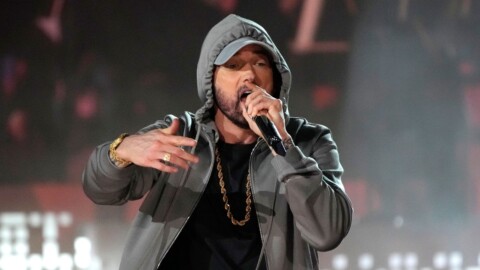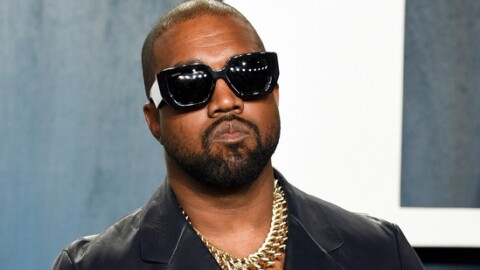In a dramatic turn of events, actress Blake Lively has filed a legal case that exposes what she describes as “hostile work environments” in Hollywood, alleging targeted efforts to harm her reputation.
Lively, known for her roles in Gossip Girl and The Sisterhood of the Traveling Pants, had long been considered an uncontroversial Hollywood figure. Married to fellow superstar Ryan Reynolds and part of Taylor Swift’s inner circle, she seemed to enjoy universal acclaim.
However, that image crumbled this past summer during the promotional tour for her film It Ends With Us, when a wave of criticism and public scrutiny threatened to tarnish her career.
The controversy began in August when Lively faced backlash for comments perceived as downplaying domestic violence, the central theme of her film. Social media quickly turned against her, resurfacing old interviews to cast her in a negative light.
What followed was an avalanche of online criticism, with public sentiment seeming to shift dramatically. As the film debuted, the uproar subsided, but the damage to Lively’s reputation lingered. Many believed this to be an organic fallout, but her newly filed lawsuit paints a different picture—one of deliberate sabotage.
Lively’s legal complaint, an 80-page document, alleges that her co-star and director Justin Baldoni, along with his studio Wayfarer, retaliated against her for raising concerns about sexual harassment on set. According to her lawyers, Baldoni and his team orchestrated a “sophisticated, coordinated, and well-financed” campaign to discredit her.
The alleged tactics included planting fake stories, leveraging social media to amplify negative narratives, and enlisting public relations professionals to manipulate public perception. Lively’s team claims this strategy aimed to silence her and undermine her credibility.
Central to the case are text messages between Baldoni’s publicist, Jennifer Abel, and crisis communications specialist Melissa Nathan, hired to manage Lively’s harassment claims. These exchanges, detailed in the lawsuit, suggest plans to “seed and promote” damaging content on social media while maintaining the illusion of authenticity.
Nathan’s messages allegedly boast of the ability to “bury anyone” and discuss creating “social manipulation” campaigns. These revelations, Lively argues, explain the rapid and seemingly inexplicable shift in public opinion against her.
Unsurprisingly, Baldoni and his team have denied the allegations. Jennifer Abel described the texts as “cherry-picked” and devoid of critical context, insisting that no smear campaign was implemented. According to Abel, the backlash against Lively arose naturally, fueled by her own actions and statements during the film’s promotional tour.
Baldoni’s lawyer, Bryan Freedman, echoed this sentiment, accusing Lively of making “demands and threats” that disrupted production and promotion. Freedman dismissed the lawsuit as “shameful” and “categorically false,” asserting that audiences responded organically to Lively’s behavior.
Despite the denials, Lively’s case has sparked a broader conversation about the darker side of Hollywood’s public relations machinery. Industry experts have noted that hiring crisis PR specialists to influence public opinion is a common, if shadowy, practice.
Rory Lynch, a reputation management lawyer, explained that planting negative stories about adversaries is not unusual in Hollywood disputes. What sets this case apart, he noted, is the apparent carelessness of discussing these tactics in writing, which has now become a key piece of evidence in Lively’s complaint.
Adding a layer of complexity to the narrative, Amber Heard, a fellow actress who has faced similar public backlash, voiced her support for Lively. Heard, who endured online hostility during her high-profile legal battles with Johnny Depp, described social media as a powerful tool for spreading misinformation.
She argued that campaigns to discredit women in the public eye are as “horrifying” as they are effective. Interestingly, Melissa Nathan, implicated in Lively’s case, reportedly worked for Depp during his disputes with Heard, raising further questions about the tactics employed.
While Lively’s lawsuit highlights specific allegations, it also pulls back the curtain on Hollywood’s use of crisis communications to sway public opinion. Reports from Variety and The Wrap describe a “sinister shadow campaign” that pushes the boundaries of acceptable PR practices.
These campaigns often involve sophisticated digital strategies to manipulate narratives, making it difficult for the public to discern truth from fabrication. As Alexi Mostrous, a journalist specializing in media manipulation, noted, this unregulated world operates largely behind closed doors.
The fallout from Lively’s case has prompted some in the industry to reflect on their own biases and susceptibility to manipulation. Laura Snapes, writing for The Guardian, admitted to reevaluating her views on Lively, expressing shock at how easily public opinion can be swayed. Similarly, Maddy Mussen of the Evening Standard questioned whether society’s willingness to vilify women is a deeper issue that transcends individual cases.
These reflections underscore the broader implications of Lively’s allegations, which challenge not just the Hollywood machine but also the audiences who consume its narratives.
For her part, Lively has categorically denied planting negative stories about Baldoni or his studio. She maintains that the negative publicity she faced was part of an orchestrated effort to undermine her.
The New York Times, which first reported on the lawsuit, noted that while it is impossible to determine how much of the backlash was seeded by Baldoni’s team, the legal case has already exposed troubling practices in the entertainment industry. The evidence presented raises questions about the ethics of crisis PR and the lengths to which some will go to protect their interests.
As the case unfolds, it has also reignited debates about the treatment of women in Hollywood, particularly those who speak out against misconduct. Lively’s allegations draw parallels to the experiences of other high-profile women, highlighting systemic issues that persist despite the progress of movements like #MeToo.
The narrative of a woman being discredited after raising concerns is one that resonates far beyond the entertainment industry, touching on broader societal patterns of silencing dissent.
Ultimately, Lively’s lawsuit is more than a personal battle; it’s a challenge to the status quo of reputation management in Hollywood. By bringing these alleged practices into the public eye, she has forced a reckoning with the ethics of media manipulation and the accountability of those who wield such power. Whether her claims will hold up in court remains to be seen, but the conversation she has sparked is unlikely to fade anytime soon.
For many fans, the revelations in Lively’s case have been a wake-up call. The ease with which public opinion can be swayed, especially against women, has left a bitter taste for those who once participated in the backlash.
As Mussen aptly put it, the real question is whether society will learn to resist these manipulations or continue to turn on women who dare to challenge the narrative. For now, Lively’s fight represents a broader struggle for transparency and justice in an industry often shrouded in secrecy.
Whether this case will result in meaningful change or simply become another footnote in Hollywood’s history of scandal remains to be seen. What is clear, however, is that Lively’s decision to take legal action has opened a Pandora’s box of questions about power, gender, and the media.
As the court battle unfolds, it will undoubtedly serve as a litmus test for the industry’s willingness to confront its darker practices and embrace a more ethical approach to reputation management.








